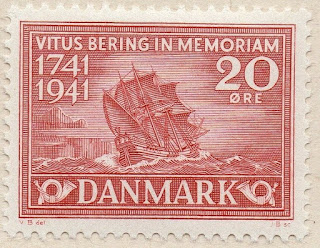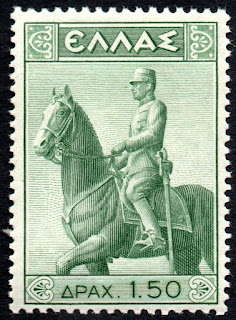Here are some events that happened on December 19th. It could be an event or a person that died or was born on that day
1741 Died: Vitus Bering, Danish-Russian hydrographer and explorer (b. 1681)
Vitus Jonassen Bering (baptised 5 August 1681, died 19 December 1741), also known as Ivan Ivanovich Bering, was a Danish cartographer and explorer in Russian service, and an officer in the Russian Navy. He is known as a leader of two Russian expeditions, namely the First Kamchatka Expedition and the Great Northern Expedition, exploring the north-eastern coast of the Asian continent and from there the western coast on the North American continent. The Bering Strait, the Bering Sea, Bering Island, the Bering Glacier and the Bering Land Bridge were all named in his honor.
Taking to the seas at the age of 18, Bering travelled extensively over the next eight years, as well as taking naval training in Amsterdam. In 1704, he enrolled with the rapidly expanding Russian navy of Tsar Peter I (Peter the Great). After serving with the navy in significant but non-combat roles during the Great Northern War, Bering resigned in 1724 to avoid the continuing embarrassment of his low rank to Anna, his wife of eleven years; and upon retirement was promoted to First Captain. Bering was permitted to keep the rank as he rejoined the Russian navy later the same year.
He was selected by the Tsar to captain the First Kamchatka Expedition, an expedition set to sail north from Russian outposts on the Kamchatka peninsula, with the charge to map the new areas visited and to establish whether Asia and America shared a land border. Bering departed from St. Petersburg in February 1725 as the head of a 34-man expedition, aided by the expertise of Lieutenants Martin Spangberg and Aleksei Chirikov. The party took on men as it headed towards Okhotsk, encountering many difficulties (most notably a lack of food) before arriving at the settlement. From there, the men sailed to the Kamchatka peninsula, preparing new ships there and sailing north (repeating a little-documented journey of Semyon Dezhnyov eighty years previously). In August 1728, Bering decided that they had sufficient evidence that there was clear sea between Asia and America, which he did not sight during the trip. For the first expedition, Bering was rewarded with money, prestige, and a promotion to the noble rank of Captain Commander. He immediately started preparations for a second trip.
Having returned to Okhotsk with a much larger, better prepared, and much more ambitious expedition, Bering set off for an expedition towards North America in 1741. While doing so, the expedition spotted Mount Saint Elias, and sailed past Kodiak Island. A storm separated the ships, but Bering sighted the southern coast of Alaska, and a landing was made at Kayak Island or in the vicinity. Adverse conditions forced Bering to return, but he documented some of the Aleutian Islands on his way back. One of the sailors died and was buried on one of these islands, and Bering named the island group Shumagin Islands after him. Bering himself became too ill to command his ship, which was at last driven to seek refuge on an uninhabited island in the Commander Islands group (Komandorskiye Ostrova) in the southwest Bering Sea. On 19 December 1741 Vitus Bering died on the island, which was given the name Bering Island after him, near the Kamchatka Peninsula, reportedly from scurvy (although this has been contested), along with 28 men of his company.
Stamps from Russia and Denmark depicting Bering and the Bering Sea
1915 Died: Alois Alzheimer, German psychiatrist and neuropathologist (b. 1864)
Aloysius Alzheimer (also known as Alois Alzheimer; June 14, 1864 – December 19, 1915) was a German psychiatrist and neuropathologist and a colleague of Emil Kraepelin. Alzheimer is credited with identifying the first published case of "presenile dementia", which Kraepelin would later identify as Alzheimer's disease.
Alzheimer discussed his findings on the brain pathology and symptoms of presenile dementia publicly on 3 November 1906, at the Tübingen meeting of the Southwest German Psychiatrists. The attendees at this lecture seemed uninterested in what he had to say. The lecturer that followed Alzheimer was to speak on the topic of "compulsive masturbation", which the audience was so eagerly awaiting that they sent Alzheimer away without any questions or comments on his discovery of the pathology of a type of senile dementia.
Following the lecture, Alzheimer published a short paper summarizing his lecture; in 1907 he wrote a larger paper detailing the disease and his findings. The disease would not become known as Alzheimer's disease until 1910, when Kraepelin named it so in the chapter on "Presenile and Senile Dementia" in the 8th edition of his Handbook of Psychiatry. By 1911, his description of the disease was being used by European physicians to diagnose patients in the US.
Stamps from USA, Denmark and Spain issued to raise awareness to Alzheimer's disease
1920 – King Constantine I is restored as King of the Hellenes after the death of his son Alexander of Greece and a plebiscite.
Constantine I (2 August 1868 – 11 January 1923) was King of Greece from 1913 to 1917 and from 1920 to 1922. He was commander-in-chief of the Hellenic Army during the unsuccessful Greco-Turkish War of 1897 and led the Greek forces during the successful Balkan Wars of 1912–1913, in which Greece expanded to include Thessaloniki, doubling in area and population. He succeeded to the throne of Greece on 18 March 1913, following his father's assassination.
His disagreement with Eleftherios Venizelos over whether Greece should enter World War I led to the National Schism. Constantine forced Venizelos to resign twice, but in 1917 he left Greece, after threats by the Entente forces to bombard Athens; his second son, Alexander, became king. After Alexander's death, Venizelos' defeat in the 1920 legislative elections, and a plebiscite in favor of his return, Constantine was reinstated. He abdicated the throne for the second and last time in 1922, when Greece lost the Greco-Turkish War of 1919–1922, and was succeeded by his eldest son, George II. Constantine died in exile four months later, in Sicily.
Greek stamps depicting Constantine I
1906 Born: Leonid Brezhnev, Ukrainian-Russian marshal, engineer, and politician, 4th Head of State of the Soviet Union (d. 1982)
Leonid Ilyich Brezhnev (19 December 1906 – 10 November 1982) was a Soviet politician. The fifth leader of the Soviet Union, he served as General Secretary of the Central Committee of the governing Communist Party of the Soviet Union (CPSU) from 1964 until his death in 1982. His 18-year term as general secretary was second only to Joseph Stalin's in duration. While Brezhnev's rule was characterized by political stability and notable foreign policy successes, it was also marked by corruption, inefficiency, and rapidly growing technological gaps with the West.
Brezhnev's conservative, pragmatic approach to leadership significantly stabilized the position of the Soviet Union and its ruling party. Whereas Khrushchev routinely disregarded the rest of the Politburo while exercising his authority, Brezhnev was careful to minimize dissent among the Party membership by reaching decisions through consensus. Additionally, while pushing for détente between the two Cold War superpowers, he achieved Soviet nuclear parity with the United States and legitimized his country's hegemony over Eastern Europe. Furthermore, the massive arms buildup and widespread military interventionism under Brezhnev's regime significantly expanded the Soviet Union's global influence (particularly in the Middle East and Africa).
Conversely, Brezhnev's hostility to political reform ushered in an era of societal decline known as the Brezhnev Stagnation. In addition to pervasive corruption and falling economic growth, this period was characterized by an increasing technological gap between the Soviet Union and the West. Upon coming to power in 1985, Mikhail Gorbachev denounced Brezhnev's government for its pervasive inefficiency and inflexibility before implementing policies to liberalize the Soviet Union.
After 1975, Brezhnev's health rapidly deteriorated and he increasingly withdrew from international affairs. Following years of declining health, he died on 10 November 1982 and was succeeded as general secretary by Yuri Andropov.
Stamps from Russia and East Germany depicting Leonid Brezhnev











No comments:
Post a Comment